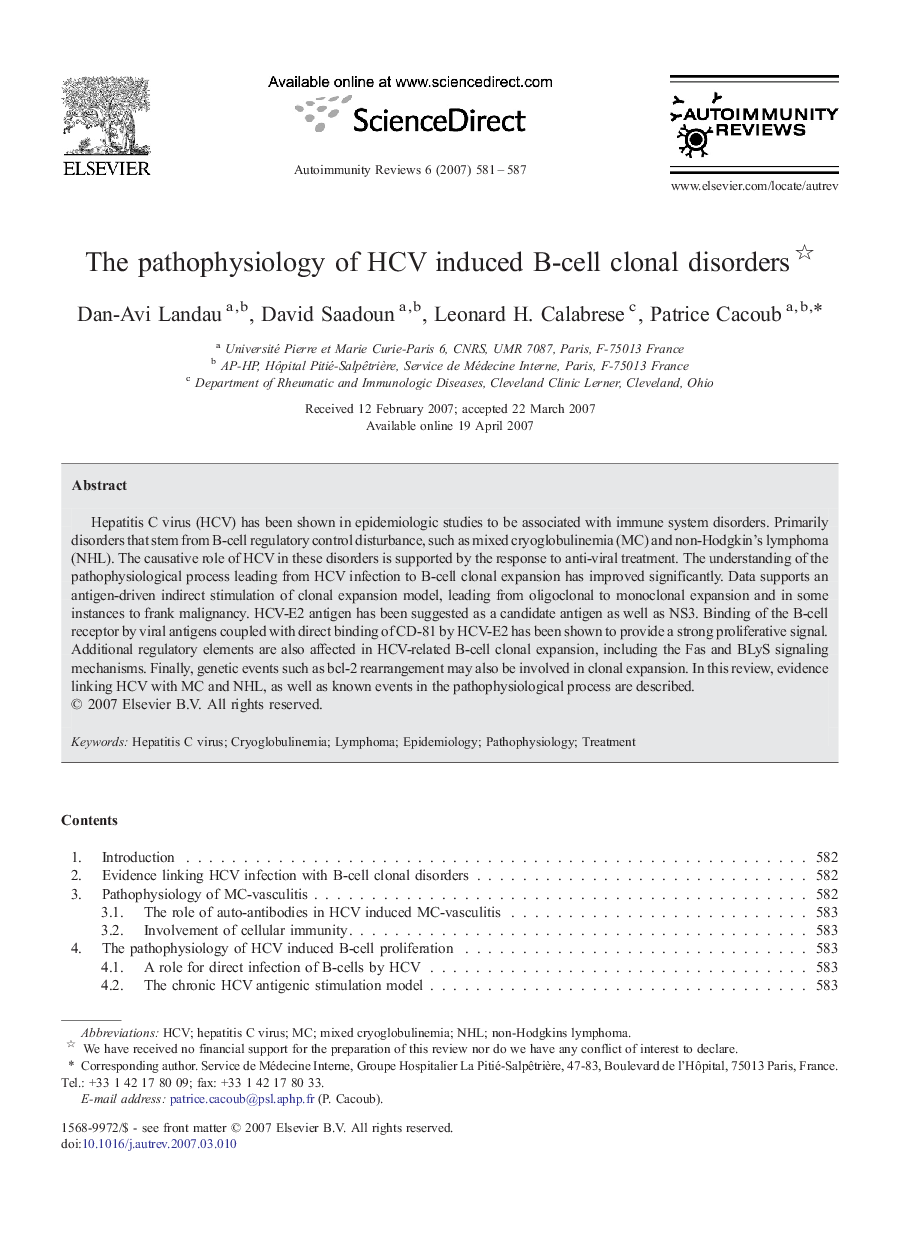| کد مقاله | کد نشریه | سال انتشار | مقاله انگلیسی | نسخه تمام متن |
|---|---|---|---|---|
| 3342578 | 1214294 | 2007 | 7 صفحه PDF | دانلود رایگان |

Hepatitis C virus (HCV) has been shown in epidemiologic studies to be associated with immune system disorders. Primarily disorders that stem from B-cell regulatory control disturbance, such as mixed cryoglobulinemia (MC) and non-Hodgkin's lymphoma (NHL). The causative role of HCV in these disorders is supported by the response to anti-viral treatment. The understanding of the pathophysiological process leading from HCV infection to B-cell clonal expansion has improved significantly. Data supports an antigen-driven indirect stimulation of clonal expansion model, leading from oligoclonal to monoclonal expansion and in some instances to frank malignancy. HCV-E2 antigen has been suggested as a candidate antigen as well as NS3. Binding of the B-cell receptor by viral antigens coupled with direct binding of CD-81 by HCV-E2 has been shown to provide a strong proliferative signal. Additional regulatory elements are also affected in HCV-related B-cell clonal expansion, including the Fas and BLyS signaling mechanisms. Finally, genetic events such as bcl-2 rearrangement may also be involved in clonal expansion. In this review, evidence linking HCV with MC and NHL, as well as known events in the pathophysiological process are described.
Journal: Autoimmunity Reviews - Volume 6, Issue 8, September 2007, Pages 581–587